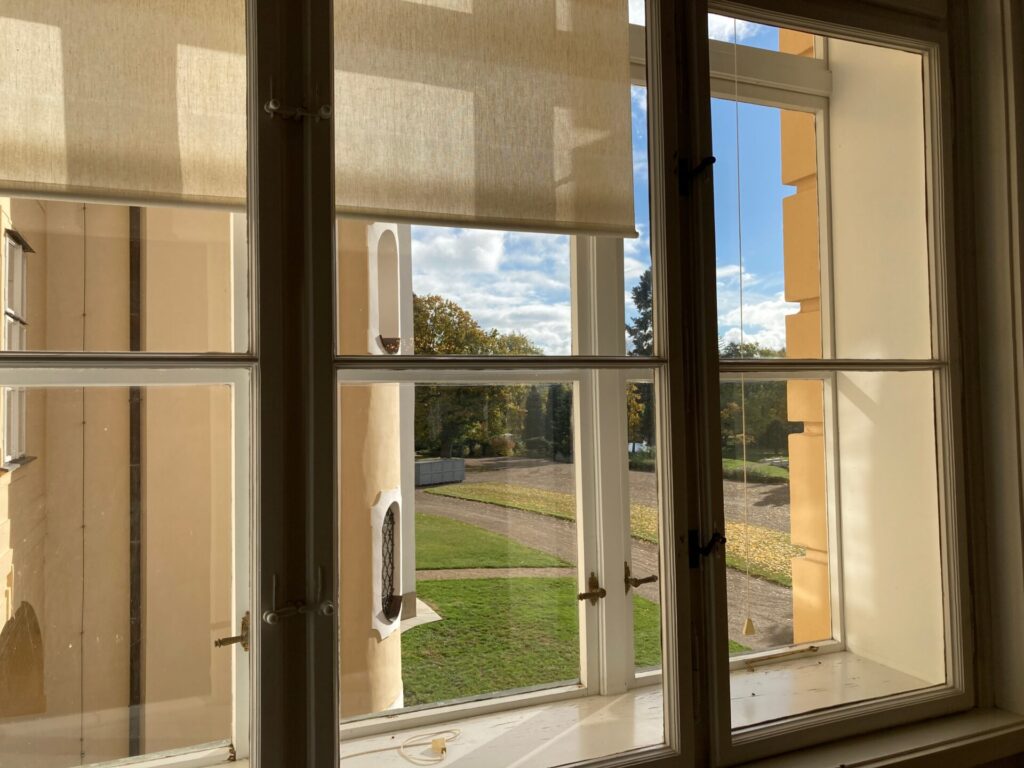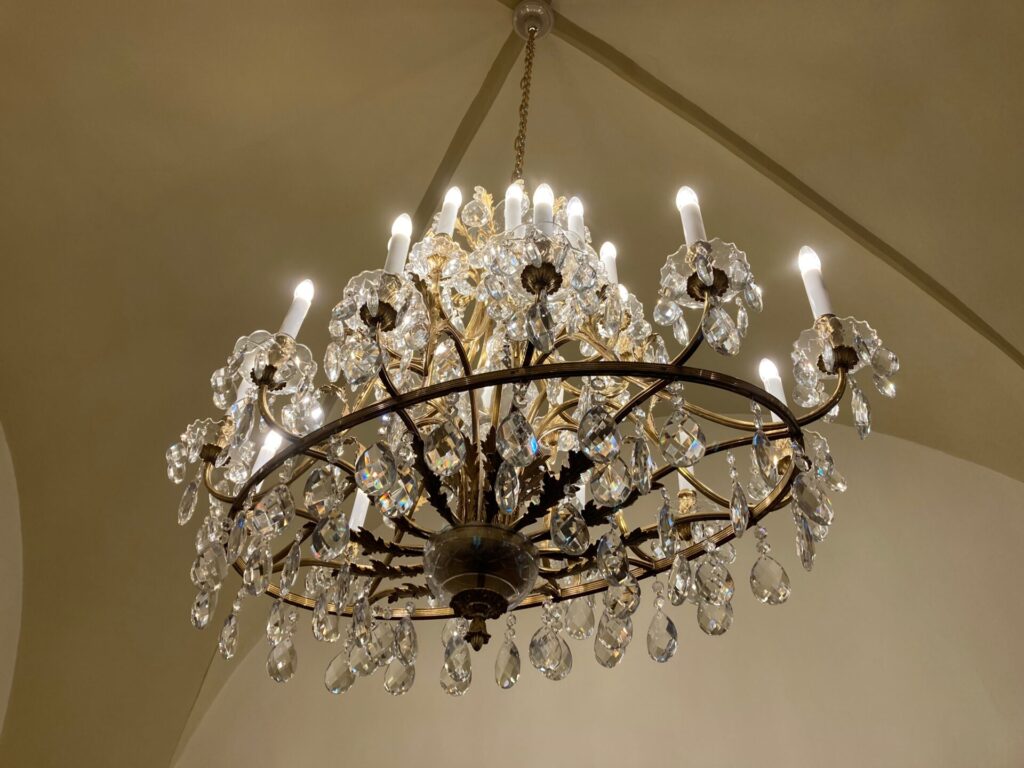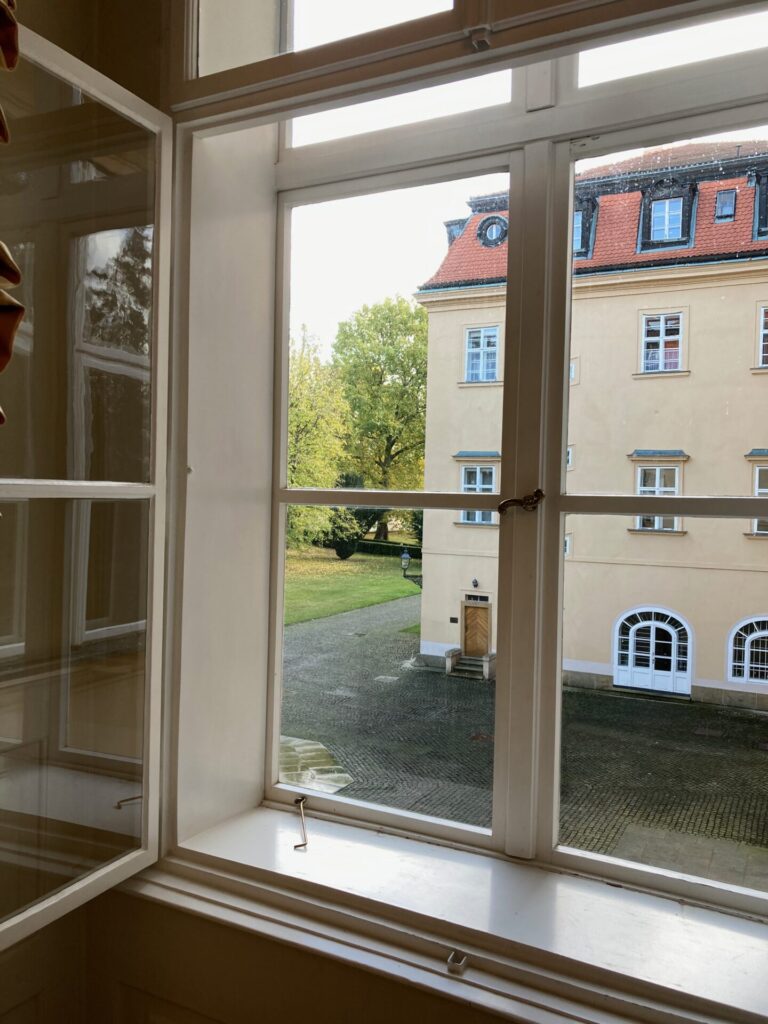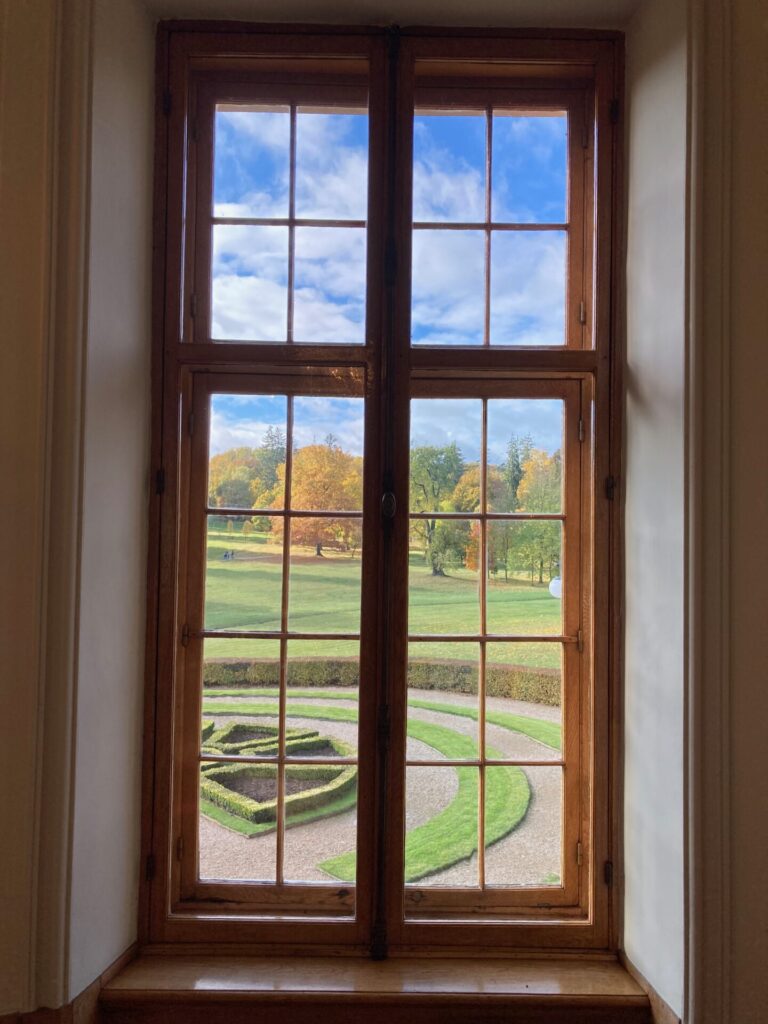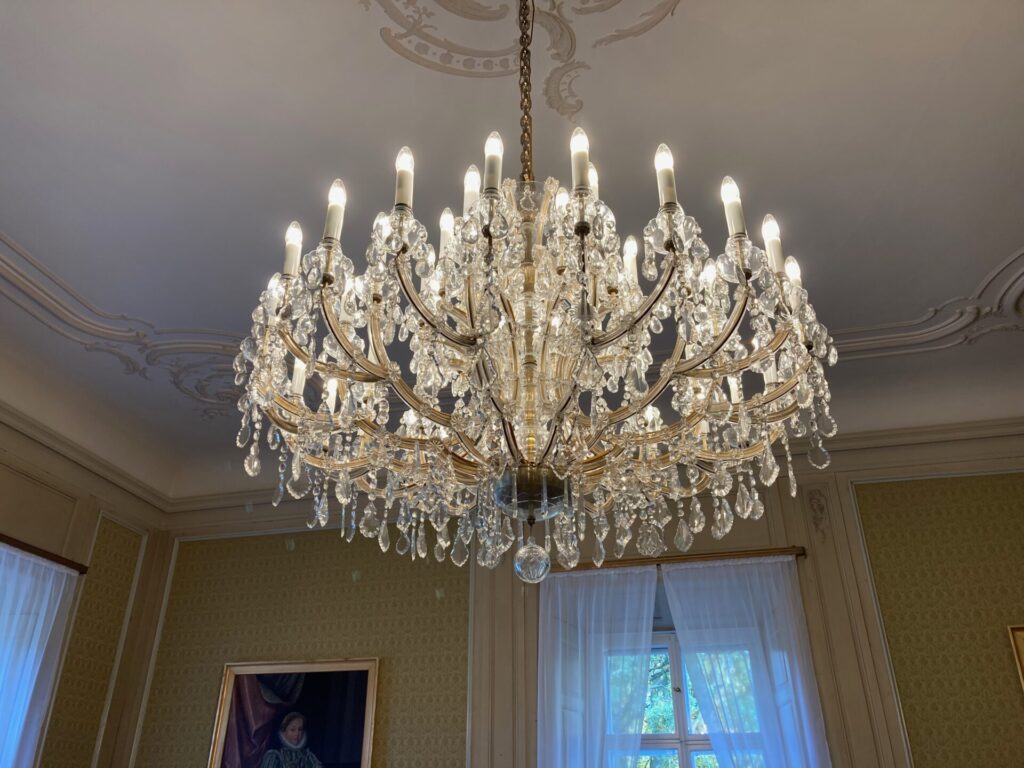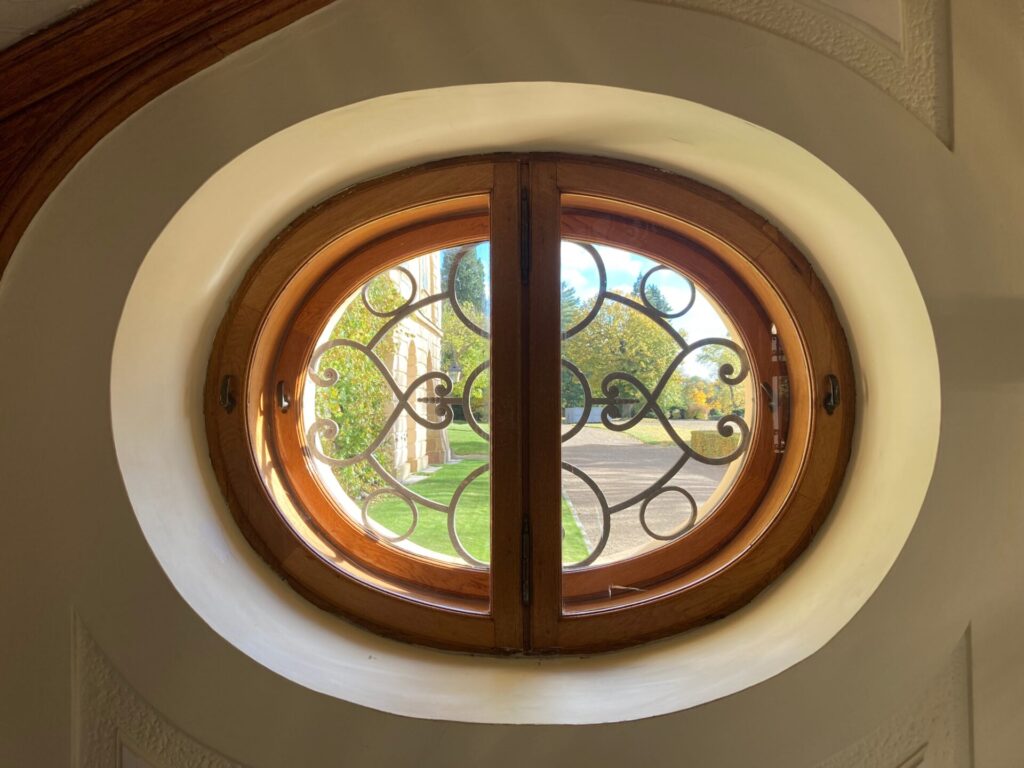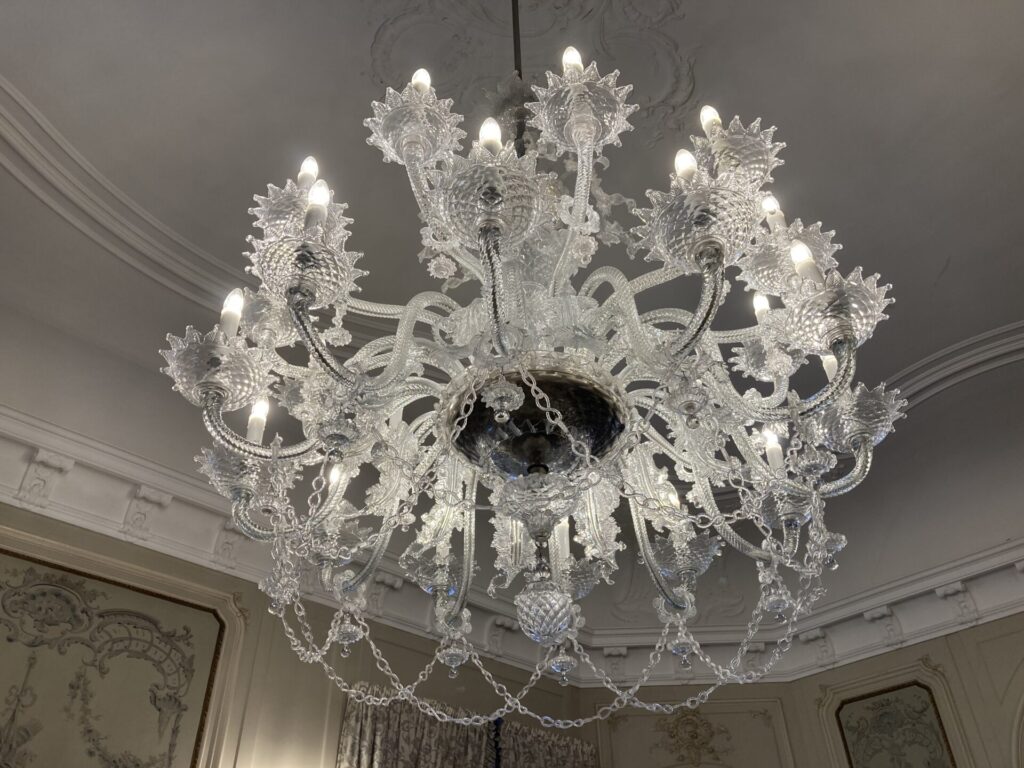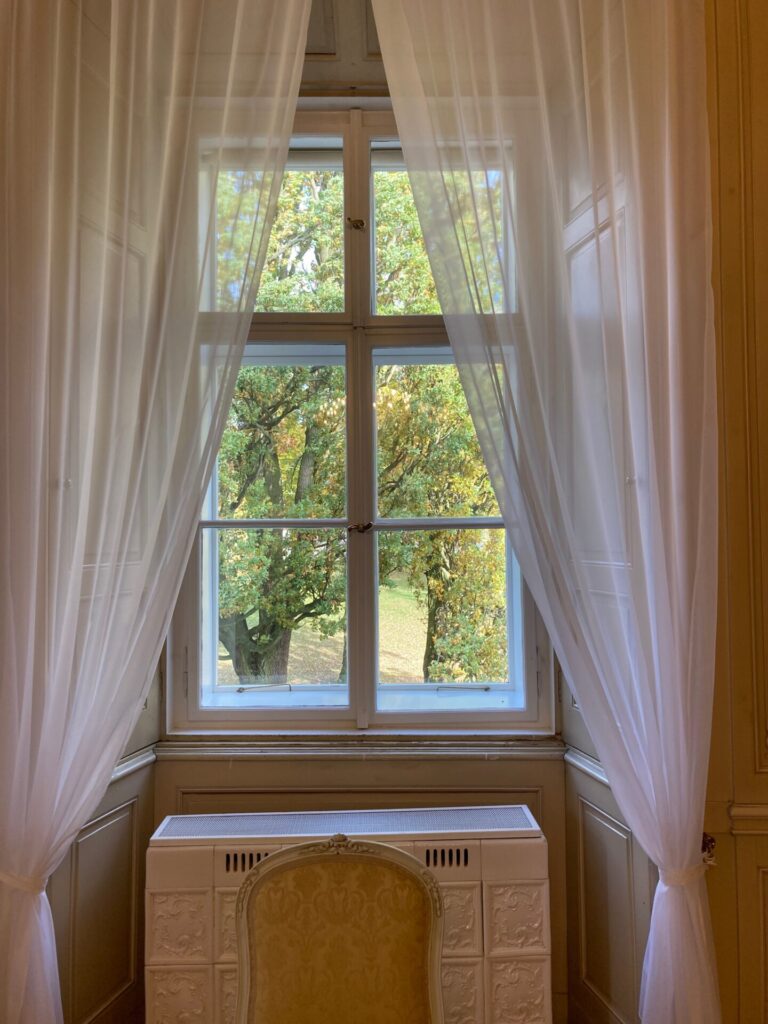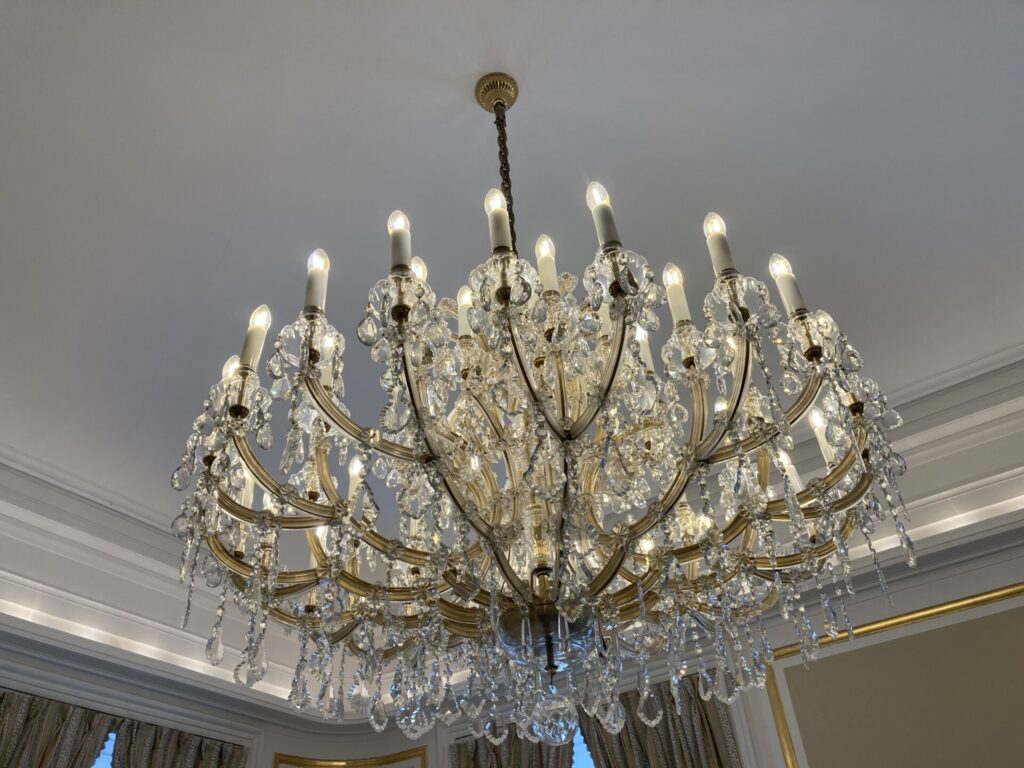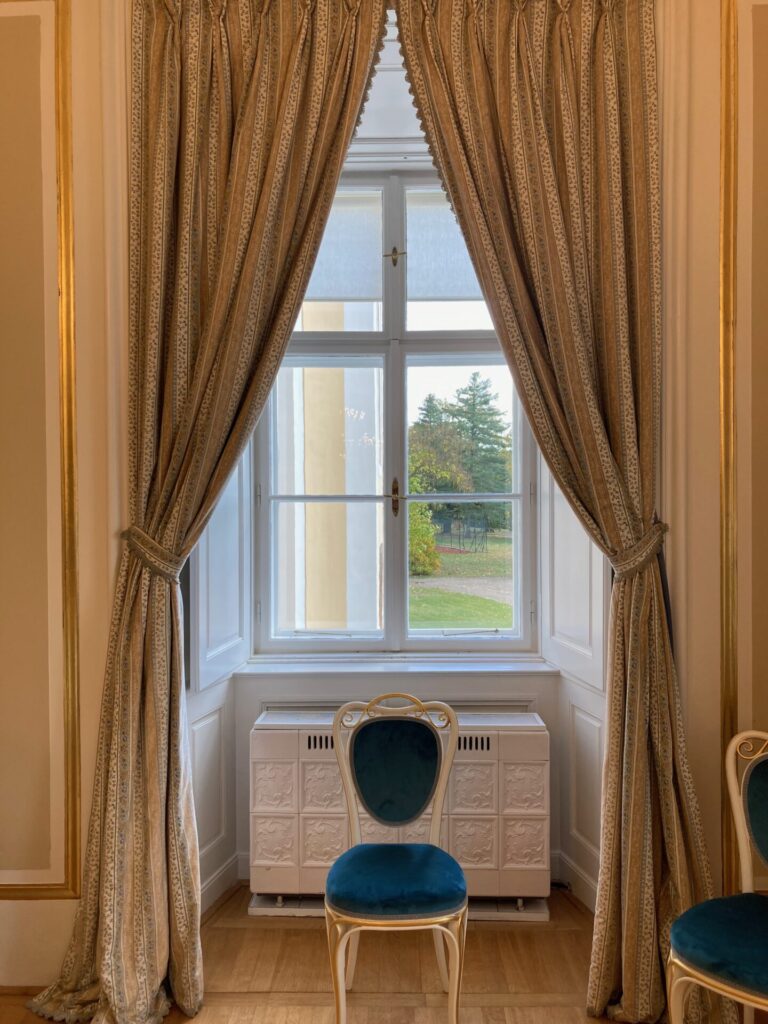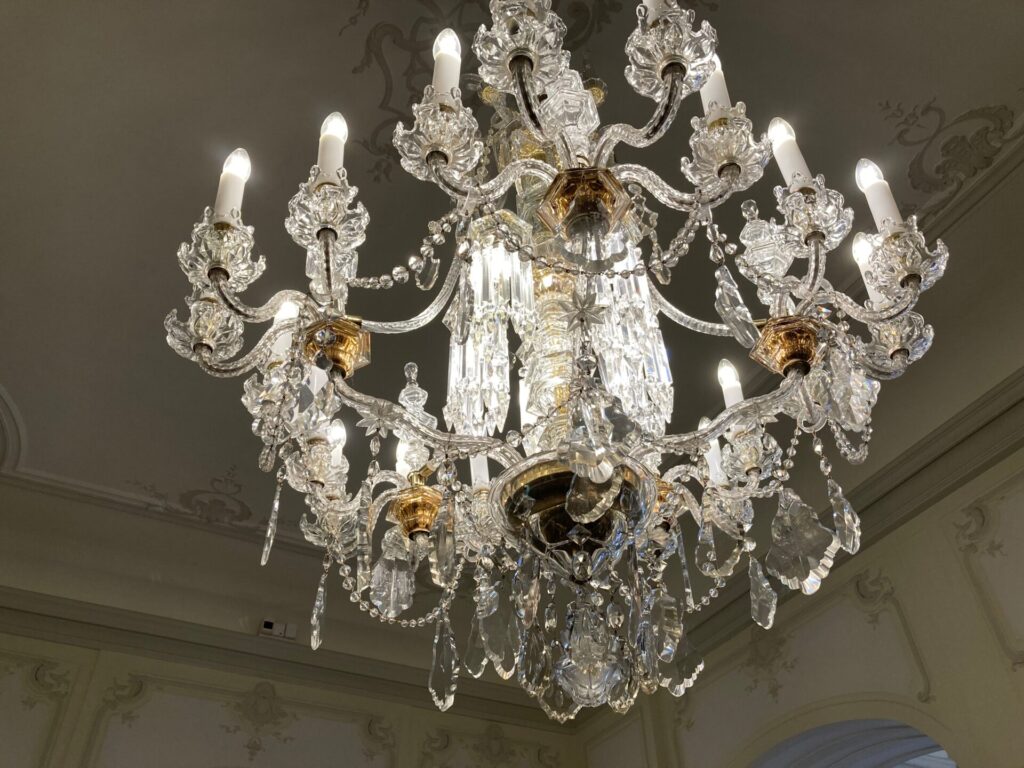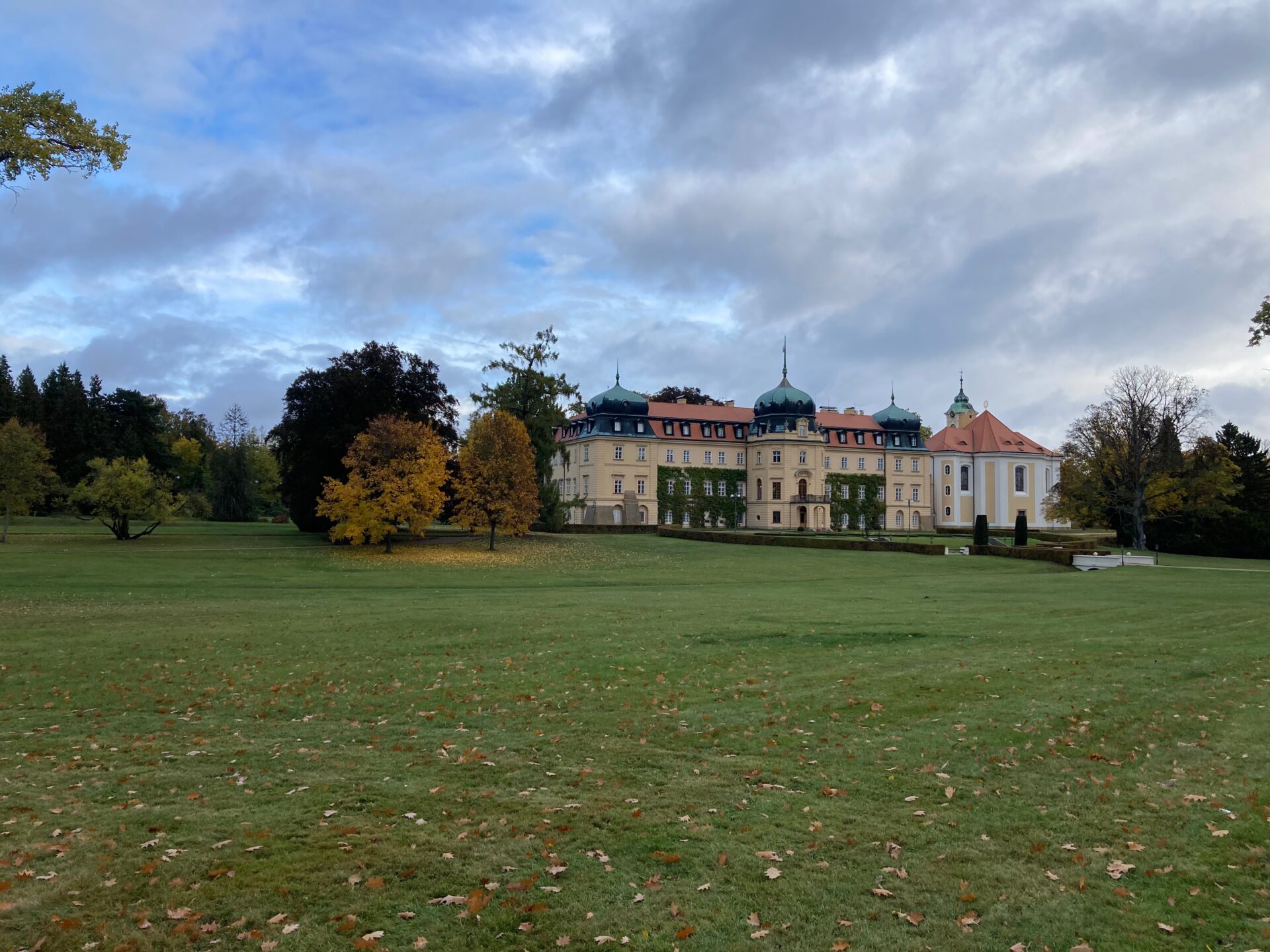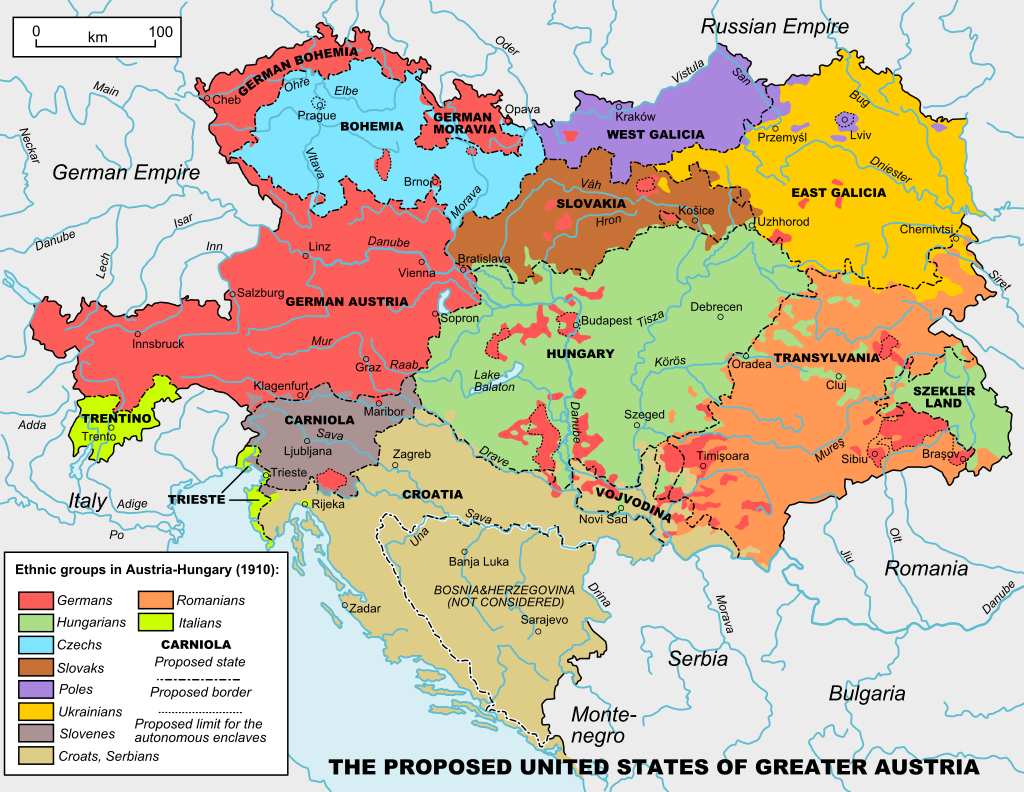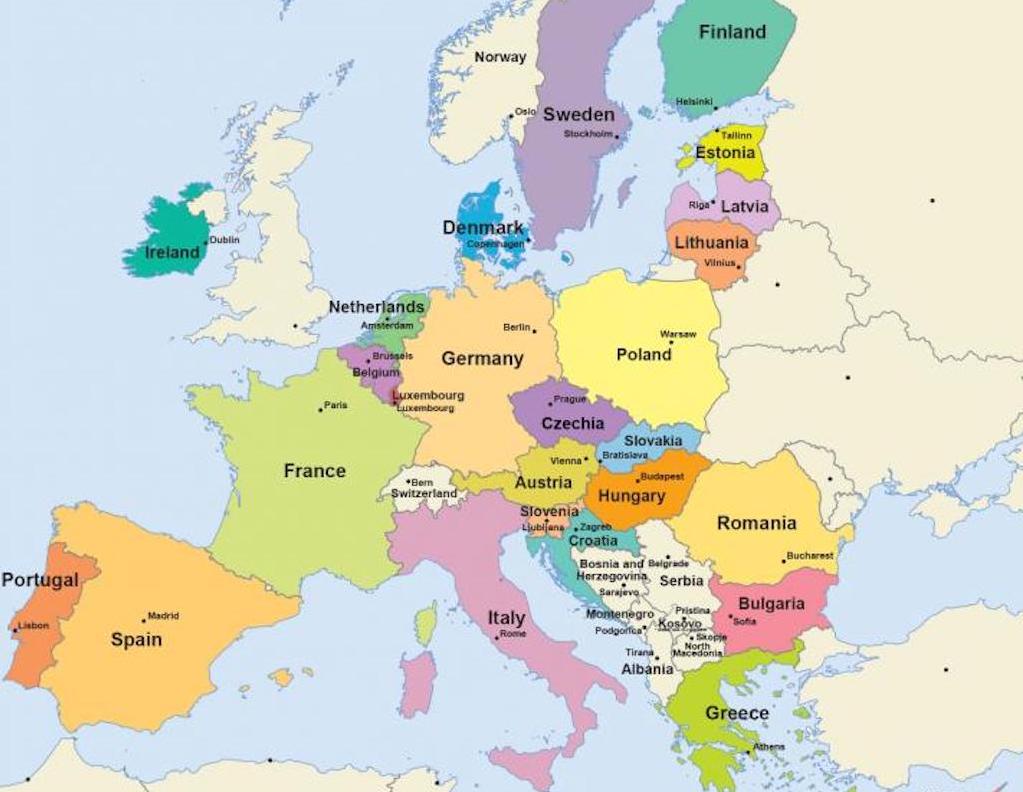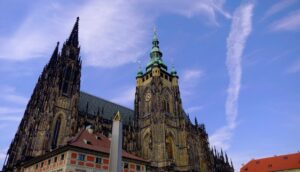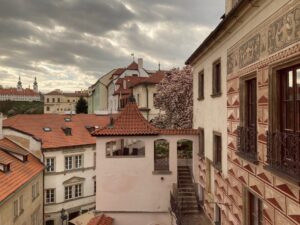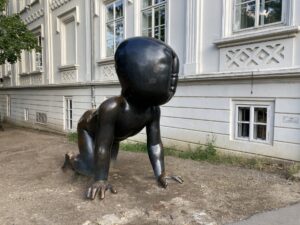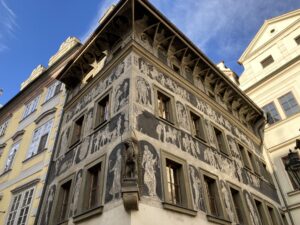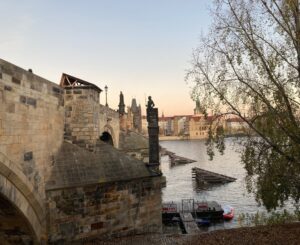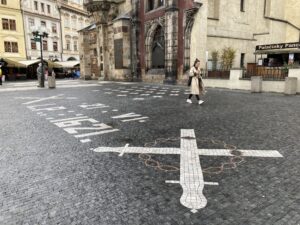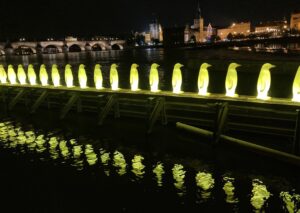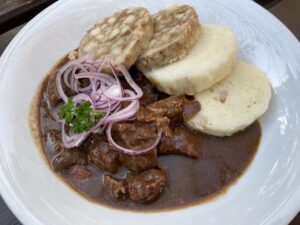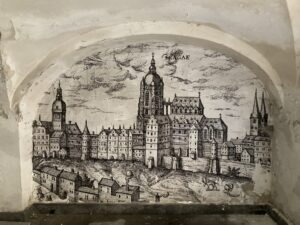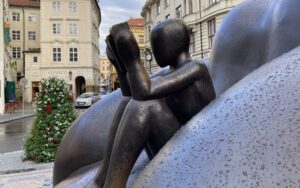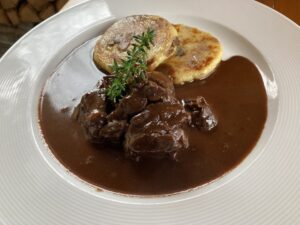“So they’ve killed our Ferdinand,” said the charwoman to Mr. Schweik who, having left the army many years before, when a military medical board had declared him to be an idiot, earned a livelihood by the sale of dogs — repulsive non-purebred creatures for whom he forged pedigrees.
This is the introductory sentence of The Good Soldier Schweik by author Jaroslav Hašek, the most translated Czech book, which has been translated into almost 60 languages. But who was that Ferdinand, whose death is known to millions of Hašek readers worldwide? And what would have happened if the assassins in Sarajevo had not killed him?
“Bang!”
A shot from a hunting rifle scared off a flock of wood pigeons, which, with a loud flapping of their wings, rose above the treetops of the preserve of the chateau in Lány. A slender doe took a last jump, but in mid-movement, was hit and her body fell limply to the ground.
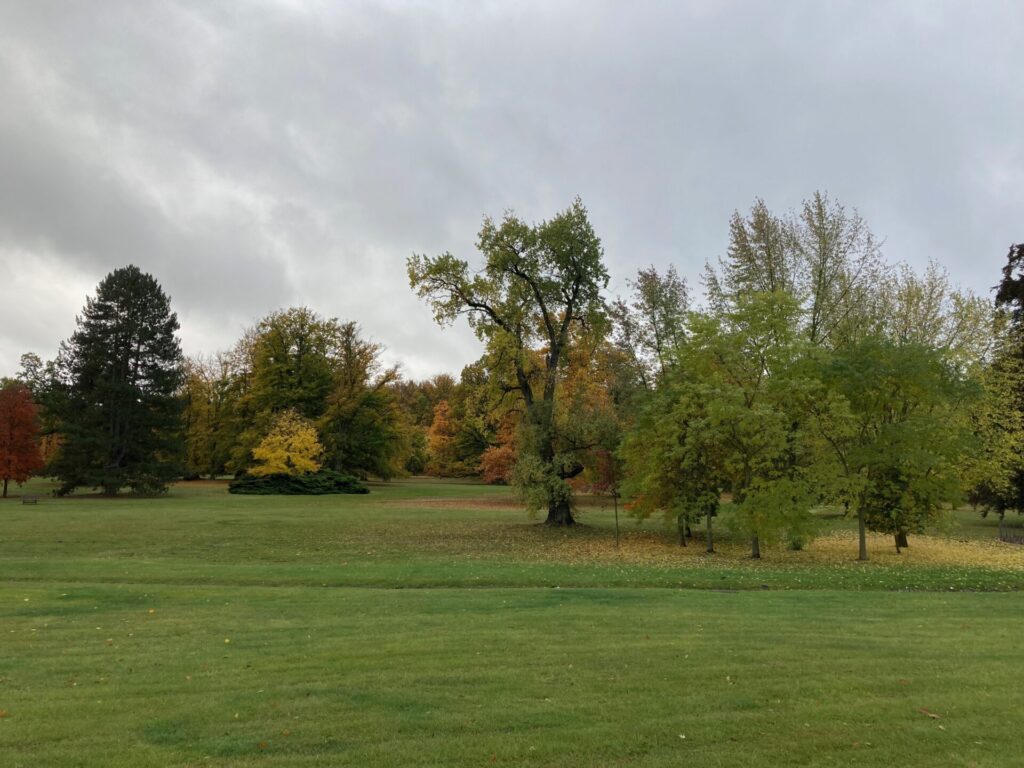
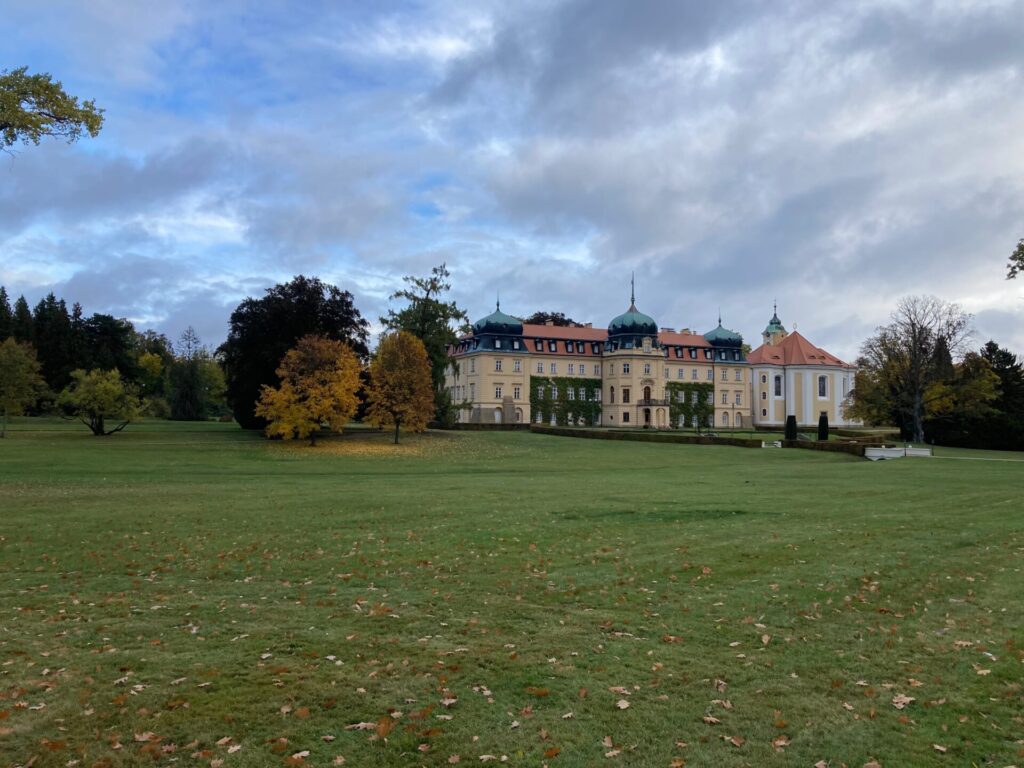
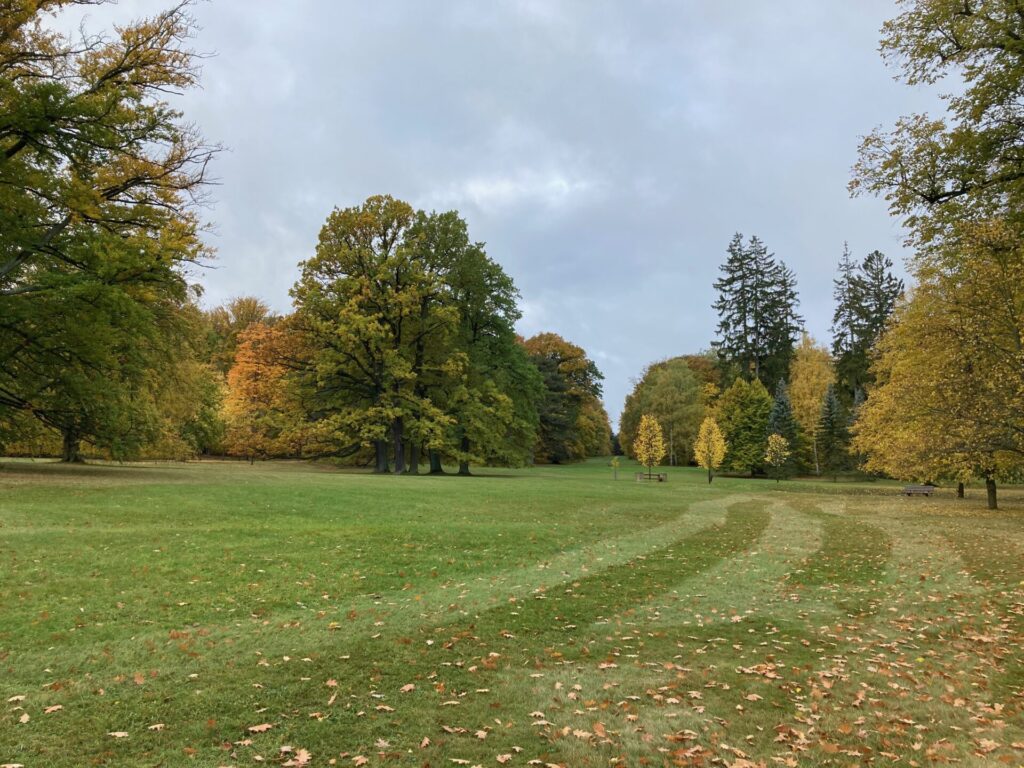

Archduke Franz Ferdinand d’Este (František Ferdinand d’Este) smiled. He was tired but satisfied. November 22, 1913, was his lucky day. He’d shot 98 deers in the morning at the Lány chateau, and on the same day, he’d gone on a hunt for pheasants and hares in Smečno. He would then later return to the castle in Lány, where an exhibition of the shot game was organized after dinner. He loved it. And he also loved evening walks through the park, into whose darkness the windows of the cozy castle shone.
Maximilian Egon II, the owner of the Lány castle, hosted the company. The Prince of Fürstenberg. Neither he nor his guest, Franz Ferdinand d’Este, had any idea that this evening would be the last of their many hunts together on the Lány game preserve. Franz Ferdinand was killed in June of the following year by the assassin Gavrilo Princip in Sarajevo. This death became the trigger of the First World War, after which Prince Maxmilián Egon, who had been born in the Lány castle, offered the Lány estate to the newly established republic to purchase to protect the rest of the property from expropriation during the land reform. He then handed over the properties in Bohemia to his son Maxmilián and moved to Germany.
Successor to the Throne?
Franz Ferdinand d’Este was a passionate hunter. A realistic estimate says that he shot 300,000 games in his lifetime. When visiting his Castle Konopiště, it is enough to walk through the Hunting Corridor, where a small part of his trophies is displayed.

In December 1892, Franz Ferdinand made a trip around the world. He described his experiences in his “Diary of My Journey Around the Globe,” where he also wrote about what he’d caught on his journey. It’s an almost unbelievable list. He shot tigers, elephants, kangaroos, pelicans, ostriches, koala bears, platypuses, and flying fish. He was an excellent shooter. When he saw in the court of the Maharajah of India a miraculous marksman who shot coins thrown into the air, it is said Franz Ferdinand aimed – and shot down the coins even more brilliantly.
Franz Ferdinand d’Este shared a passion for hunting with his uncle, Emperor Franz Joseph I (František Josef I.). Franz Ferdinand was born on December 18, 1863; his father was Archduke Charles Louis, the emperor’s younger brother. At that time, the emperor had already ruled for 15 years and had another almost 53 years ahead of him. (He was on the throne from December 1848 to November 1916, 11 days short of completing 68 years of reign, which ranks him sixth on the list of longest-reigning monarchs in world history.)
Ferdinand’s position in the Habsburg family changed unexpectedly at the end of the 19th century. In 1889, the only male descendant of Franz Joseph I, Crown Prince Rudolf, committed suicide. The successor then became Archduke Karl Ludwig, who died in 1896. This then made the succession pass to Franz Ferdinand.
Illegitimate Sons and a Marriage that Defied the Empire
In 1900, Franz Ferdinand married the beautiful Sophie Chotek (Žofie Chotková). However, he became the father of two illegitimate sons before meeting her. In 1885, Heinrich was born (Franz Ferdinand was 22 years old at the time), and Kurt was born four years later. Their mothers were the underage Theresia Jonke and a saleswoman and actress, Marie Hahn. Ferdinand provided financially for both sons, but he could not marry their mothers even if he wanted to because he could not marry an unnoble woman. This applied to all family members, let alone the successor to the throne: “No prince or princess of Our imperial family may marry without the permission of the acting head of the family.”
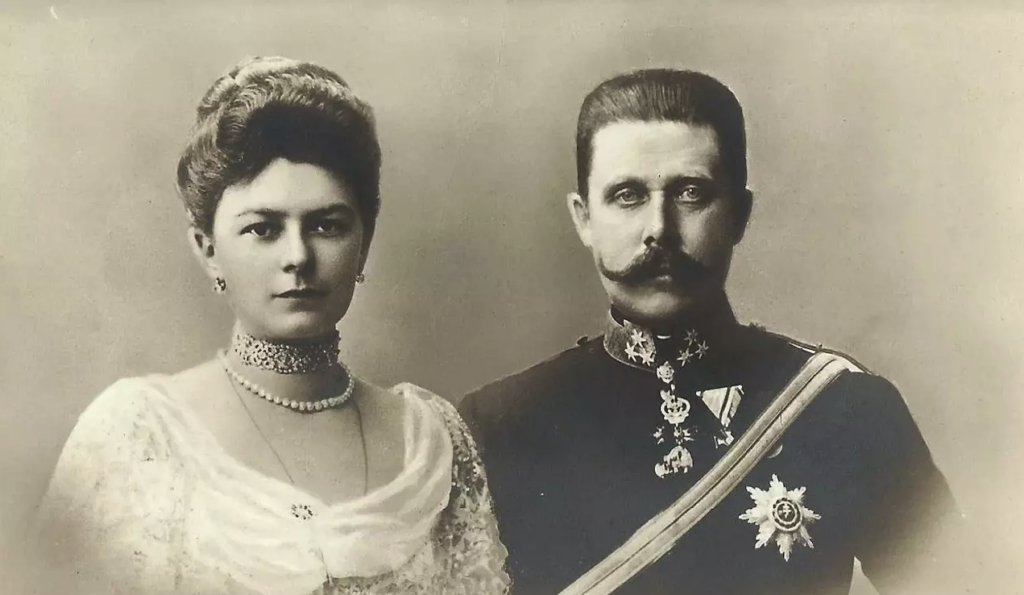
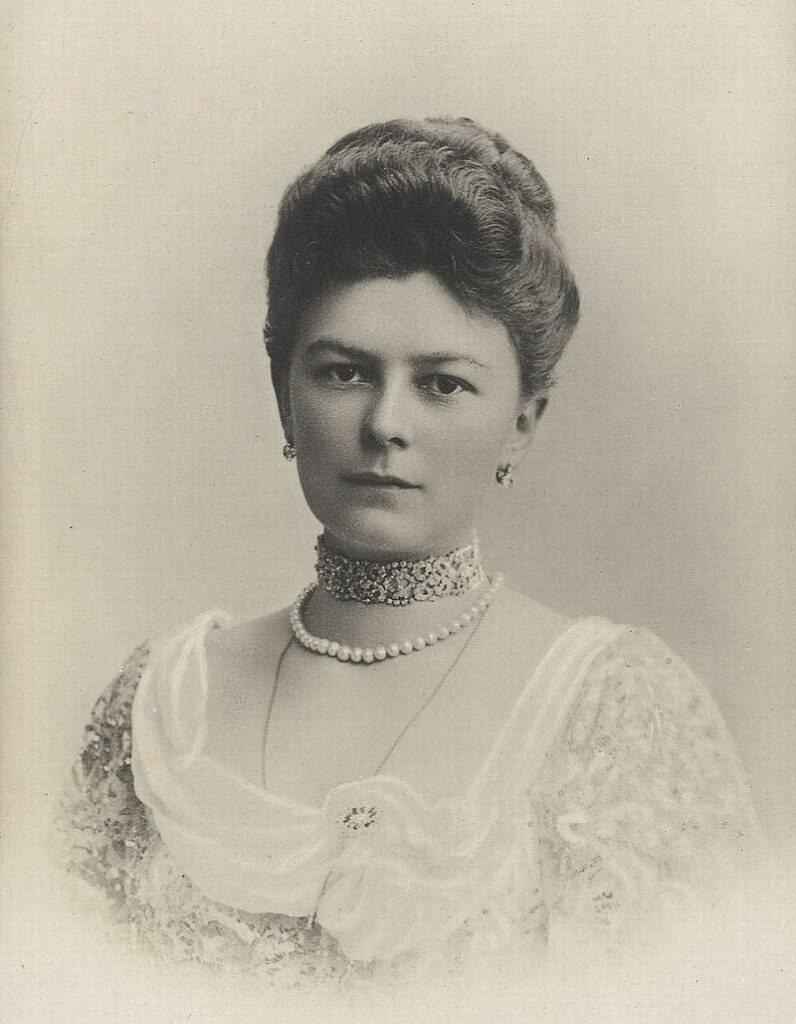
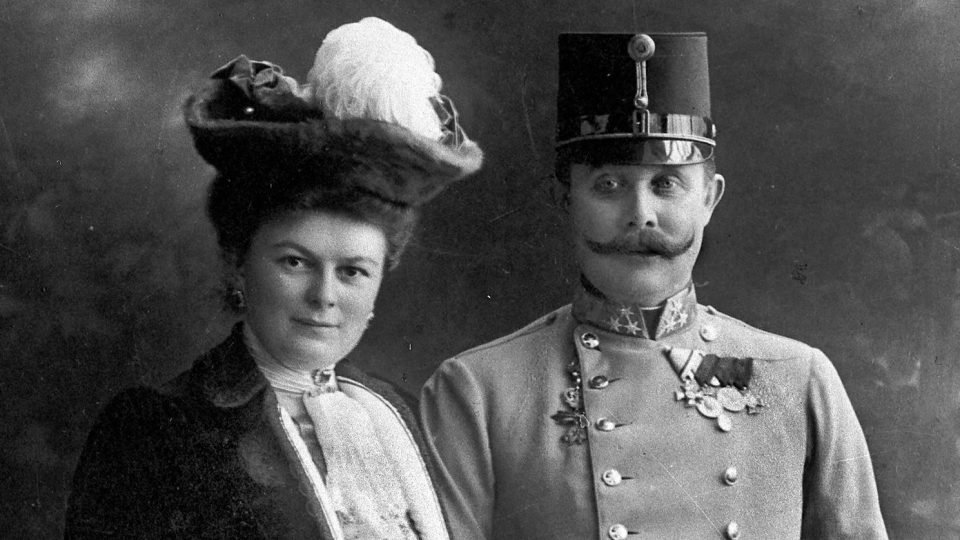
When Franz Ferdinand met the beautiful and soulful Sophie Chotek, he knew he had met the love of his life. Even in this case however, the marriage was not easy. The emperor had originally hoped that his son’s widow (of the Crown Prince Rudolph) would become Ferdinand’s wife. Regardless of Ferdinand’s wish, however, it had been confirmed that members of the Habsburg dynasty had to marry only members of royal families. And the Countess Sophie Chotek came “only” from the old Czech noble family of Chotek.
Although the Choteks belonged to the old Bohemian nobility, it would still have been an unequal marriage because Sophie was not a lady from the royal family. The emperor finally gave in to the requests and granted Ferdinand an extraordinary exception – the most enormous contribution to this was Infanta Maria Theresa of Portugal, Ferdinand’s stepmother (Ferdinand was a half-orphan from the age of eight), who loved her son very much. The emperor then elevated Countess Sophie to princely status with the title “of Hohenberg” on her wedding day, and in 1908 he promoted her to duchess. But Ferdinand had to give up the succession for his descendants, and his new wife was denied the honors to which the wife of the heir to the throne would otherwise have the right. Even the wedding took place only in a close family circle – including the newlyweds, there were only twenty people present.
Fatal Sarajevo
In June 1914, Franz Ferdinand and Sophie were on an inspection trip to Sarajevo. Their two sons and a daughter were waiting for them at home; Sophie was pregnant with their fourth child. On the morning of June 28, 1914, Ferdinand sent his daughter Sophie a short telegram: “Mother and I are doing very well. The weather is warm and beautiful. Yesterday, we hosted a big dinner, and this morning there was a big reception in Sarajevo. There will be a big dinner in the afternoon, and then we will depart. I hug you warmly. Dad.” These were the last words that Franz Ferdinand wrote to his children.
As the convoy of cars accompanying the successor to the throne drove along the embankment, one of the assassins threw a bomb. However, the Archduke deflected it with his hand. The bomb exploded under another car, and the imperial couple suffered no injuries.
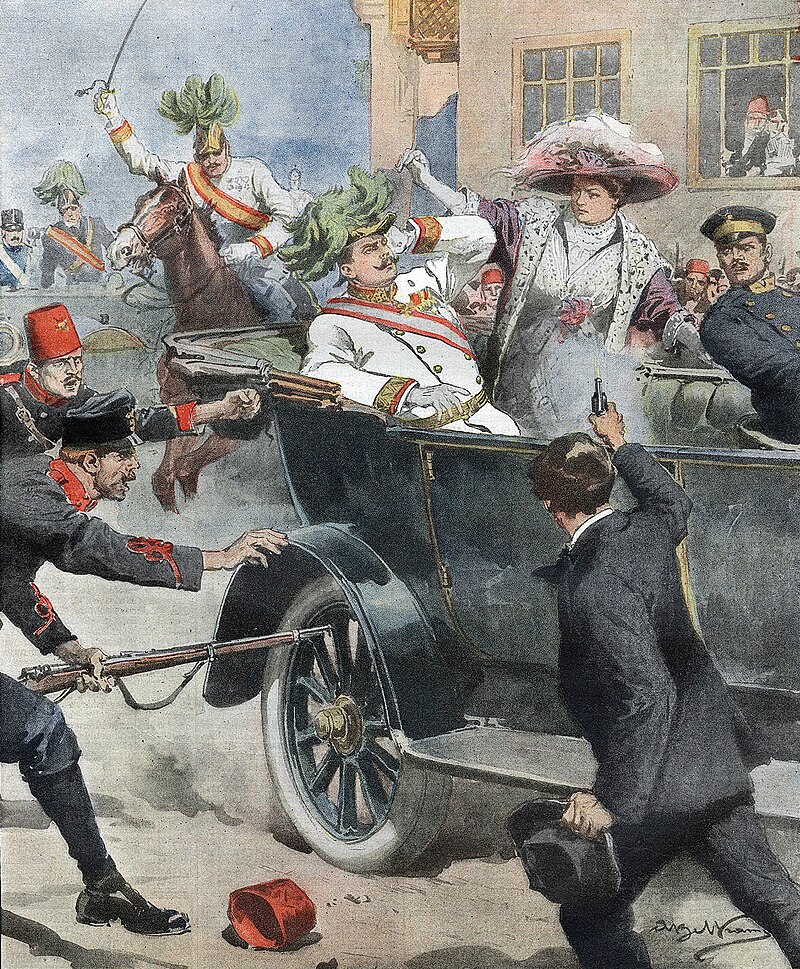
Franz Ferdinand wanted to send his wife to safety, but she refused, saying: “As long as the Archduke appears in public today, I will not leave him.”
This proved to be fatal. Franz Ferdinand refused to change the visit plan and ran for safety. Gavrilo Princip then jumped up to the car and fatally shot them both at close range. The shots severed the arteries of both husband and wife, and they both bled to death very quickly. Franz Ferdinand d’Este’s last words belonged to his beloved pregnant wife: “Sophie, Sophie, don’t die! Stay alive for our children!” They died minutes after each other.
The First World War and the Czech Joy of Defeat
The result of the assassination was the First World War. First, Austria-Hungary declared war on Serbia, and then everyone declared war on each other until it became a four-year world conflict. At the end of it, the four great European monarchies gradually disappeared: Czarist Russia, the Austro-Hungarian Empire, the German Empire, and the Turkish Sultanate. The war meant an unprecedented experience, therefore dubbed “The Great War” (the world did not yet know what the “Second World War” would be like). And although the horrors of the Second World War make the first one more of a “soldier game,” we should not forget that it resulted in a total of 33 million dead, wounded, and missing.
One Austrian general once said: “Czechs enlist like sheep, fight like lions, and rejoice like children when we lose.” Almost 300,000 soldiers from the Czech Lands died on the battlefields of this war, of which about half were Czechs (30% of the population at the time were Sudeten Germans). The Czech soldiers did not particularly like the state that sent them to war, but they fulfilled their duty towards it. However, it was apparent that Austria-Hungary was no longer “holding together” much, and with the death of Emperor Franz Joseph I in the Fall of 1916, things got even worse. Four years of wartime hardship, the political instability of a nationally disparate empire, poverty, and hunger took their toll. Austria-Hungary collapsed, and the Czechoslovak Republic was proclaimed on October 28, 1918.
What Would Have Been if It Were What It Wasn’t
History does not play with “what ifs,” and if the murder of Franz Ferdinand and his wife Sophie had not been the trigger for the war, it would have been something else. The world was under great tensions of mutual relations, and it was only a matter of time when and where something would happen.
However, one big plan of Franz Ferdinand d’Este is worth mentioning: the United States of Greater Austria. Franz Ferdinand knew what the “old man,” Emperor Franz Joseph I, was no longer willing to admit at his age – that dissatisfaction was growing in the monarchy with the fact that the countries whose names were in its name had a primary say in the empire: i.e., Austria and Hungary. However, it is enough to look at the map of the then Austria-Hungary and the EU states today to see how nationally disparate the empire was.

Although Emperor Franz Joseph I, in his declarations, referred to the inhabitants of the individual countries of the monarchy as “my nations,” the perception of the monarchy as a hegemon was no longer so warm.
Franz Ferdinand saw the danger for the further development of the monarchy mainly in its dualistic structure. Therefore, he intended to transform the monarchy into a federal state of fifteen semi-autonomous states. Unfortunately, that didn’t happen anymore.
The lives of the Archduke and his wife were ended by an assassin in Sarajevo, after whose death, war broke out. Paradoxically, it contradicts what Franz Ferdinand said: “It would certainly be magnificent and tempting if we beat those Serbs and Montenegrins into one pile. But what good would cheap laurels do us if we were to create pan-European intrigues and then have to fight on two or three fronts, which we could not stand.”
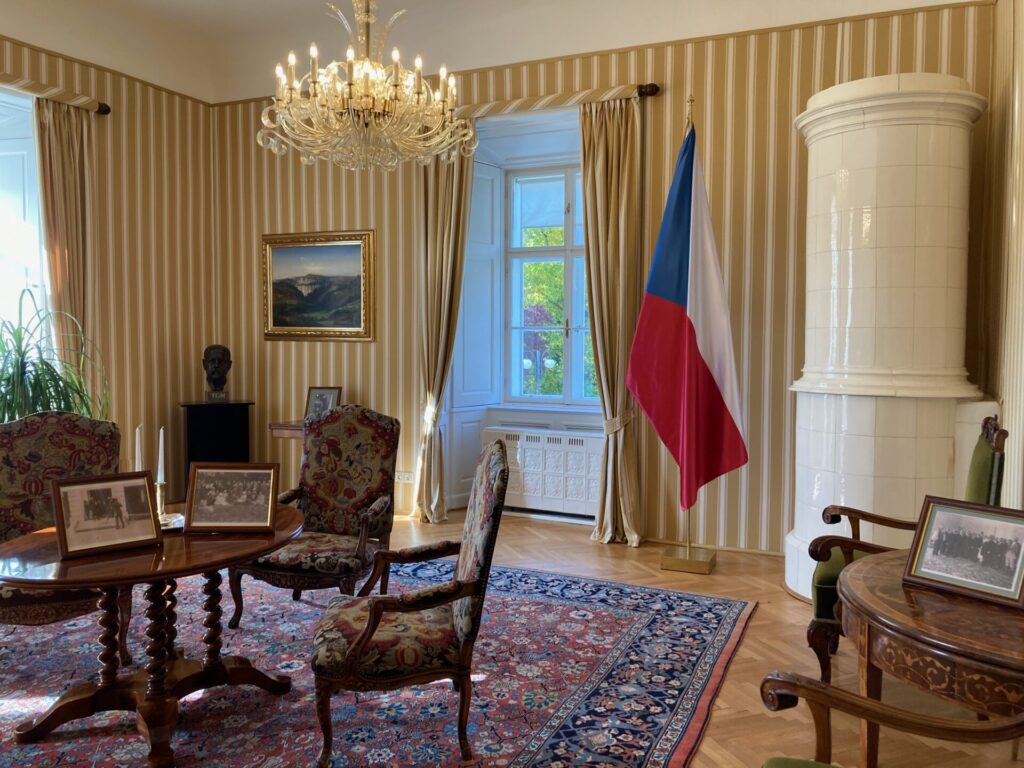
What he’d refused finally happened. Neither he nor his host from the Fürstenberg family ever returned to Lán to hunt again. Lány then became the summer residence of Czechoslovak presidents. Dinners under crystal chandeliers and magical views from the windows no longer belonged to the nobility but to the newly established republic.
